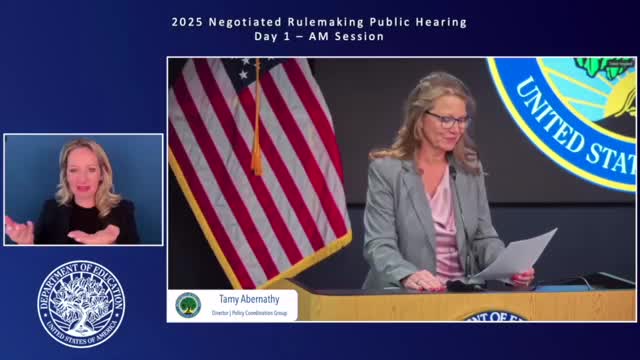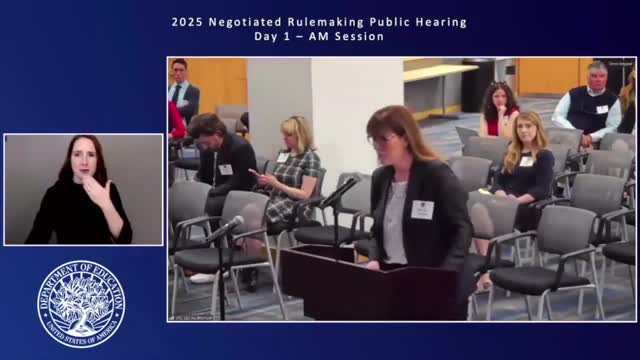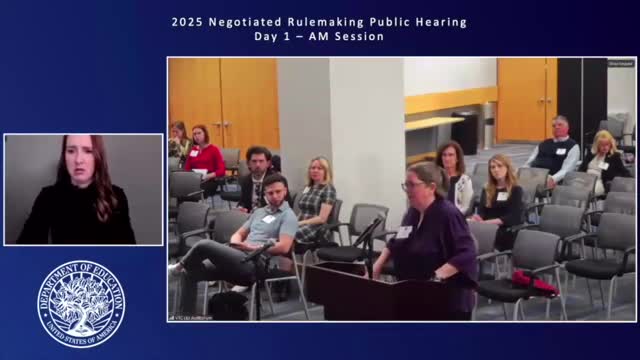Article not found
This article is no longer available. But don't worry—we've gathered other articles that discuss the same topic.

Education Department opens negotiated rulemaking on Title IV, seeks wide public input on PSLF, IDR and regulatory reforms

Accreditors and colleges press Education Department to modernize oversight: composite score, change-in-ownership and accreditation rules

